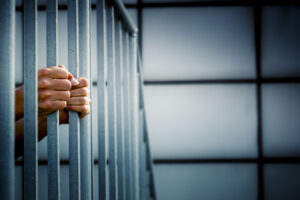
Are you facing criminal charges for destroying or concealing evidence in McKinney, TX? These kinds of criminal charges can be confusing, but you don’t have to handle them alone. At Texas Defense Firm, our McKinney destroying or concealing evidence attorneys understand just how much pressure you may be under right now, and we’ll do everything we can to help you.
With over 200 years of combined experience, our legal team is prepared to protect your rights and fight for the best possible outcome. Contact our law office today at (972) 369-0577 to schedule a confidential consultation.
Why Choose Texas Defense Firm to Help Me if I’m Arrested For Destroying or Concealing Evidence in McKinney, TX?

If you’ve been arrested for destroying or concealing evidence in McKinney, Texas, your rights and your freedom are immediately at stake. Texas Defense Firm sets itself apart by giving clients the powerful, no-nonsense protection they need at their most difficult moments.
Here’s what makes our McKinney criminal defense lawyers stand out:
- Our firm has hundreds of five-star reviews on Google.
- We have been recognized by Super Lawyers, Expertise.com, and other reputable organizations.
- We have a thorough understanding of state and federal law.
Trying to navigate a serious charge without appropriate legal assistance rarely ends well. The sooner you reach out, the sooner we can start helping you protect your future.
Call us to schedule a confidential case consultation with a McKinney destroying or concealing evidence attorney.
Overview of Destroying or Concealing Evidence in Texas
Texas Penal Code § 37.09 covers what’s commonly known as tampering with or destroying evidence. Prosecutors apply this law when they believe someone has tried to interfere with an investigation or court case by altering, concealing, or destroying evidence.
To be charged, the state can take two main legal routes.
Actions Taken During an Investigation or Court Case
First, you can be accused if you do something to a document, object, or any evidence to hide the truth while knowing about an ongoing investigation or official proceeding. This isn’t limited just to throwing away evidence.
Altering an email, hiding a record, or otherwise making something less clear or harder to find are all grounds for prosecution. You can also be charged if you create or use a document or thing you know is false and try to use it to affect what the police or courts will find.
Actions After an Offense Has Occurred
Second, you could face this charge even after a crime occurred — there doesn’t have to be an active investigation yet. If you do something that destroys, hides, or changes potential evidence in a way that would affect a later police investigation or just make the evidence unavailable, you could be arrested and charged.
Texas law also specifically makes it a crime to discover a human corpse under suspicious circumstances and not alert police, especially if you have reason to know law enforcement is unaware.
Convictions require proof that the accused acted intentionally and with clear knowledge of a case or crime.
What Are the Penalties for Destroying or Concealing Evidence in Texas?
You could face serious penalties if you are found guilty of destroying or hiding evidence in McKinney. The most common outcome is a third-degree felony.
This applies if someone is convicted of tampering with evidence under the main parts of the law or if they tampered with a document, object, or other record connected to an investigation or court proceeding. A third-degree felony carries between 2 and 10 years in prison and up to $10,000 in fines.
Penalties When Tampered Evidence Includes a Human Corpse
If the evidence involved is a human corpse, the charges increase to a second-degree felony. Penalties include up to 20 years in prison (with a minimum of 2 years) and fines of up to $10,000.
Penalties for Failing to Report the Whereabouts of a Human Corpse
If you fail to report the existence or whereabouts of a body under suspicious circumstances, the case is prosecuted as a Class A misdemeanor. Conviction here means you could spend up to a year in jail and face fines of up to $4,000.
Texas courts take accusations of tampering or concealing evidence seriously. Make sure you speak with a criminal defense lawyer right away.
What Defenses Can Be Raised if I’m Arrested for Destroying or Concealing Evidence?
If you’re accused of destroying or concealing evidence, there are several defenses your attorney may be able to use to protect your rights and seek a better outcome in your case.
Privileged or Work-Product Exclusions
Materials that fall under attorney-client privilege or are protected as work product are generally not subject to liability for tampering under Texas law. If the item in question qualifies as privileged, you cannot be convicted for destroying or withholding it.
Destruction of Certain Visual Material (§43.261 Safe Harbor)
Texas law provides a defense if the item you destroyed is certain prohibited visual material, like “sexting” images involving minors, and you meet the strict requirements under §43.261. If you promptly delete those images and do not share or keep them (as described by the law), that action can be a valid defense against a tampering charge.
Plea Deal
Sometimes, the strongest option is a negotiated plea deal. Prosecutors may reduce charges or recommend lesser penalties, especially if you have no criminal history. Your lawyer can often argue for mitigation if you cooperate early.
For anyone facing allegations of destroying or concealing evidence, a successful defense requires help from a criminal defense attorney as soon as possible.
Schedule a Confidential Case Evaluation With Our McKinney Destroying or Concealing Evidence Lawyers
No matter the circumstances surrounding your charge, the right legal help makes all the difference. Having an attorney skilled in negotiation and trial advocacy means you’re not alone when questions start coming in from law enforcement and the prosecutor. The sooner you reach out for help, the sooner we can start getting your defense together.
Contact Texas Defense Firm to schedule a consultation with a McKinney destroying or concealing evidence lawyer.
